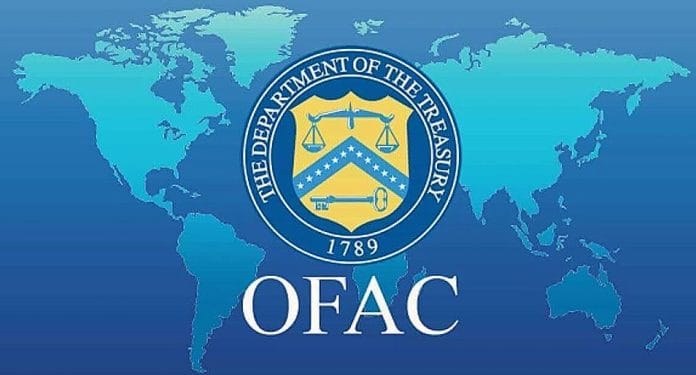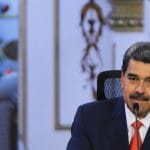Less than two weeks after the reimposition of United Nations “snapback” sanctions on Iran on September 27, the U.S. Government announced a substantial new package of unilateral Iran sanctions on October 9. This process demonstrates the U.S. policy of “maximum pressure on Iran” is alive and well despite the broad shutdown of non-essential U.S Government functions which started on October 1. Obviously keeping Washington’s sizeable cadre of sanctioneers at their desks in several government departments is considered an essential national security mission by the Trump administration.
Since the “snapback” UN sanctions were approved, Washington has kept busy applying direct pressure on Tehran. Earlier this month, on October 1, the U.S. announced the imposition of a set of additional sanctions in support of the snapback of UN sanctions for “significant non-performance” of its nuclear commitments. At that time, Washington designated 44 individuals and entities involved in Iran’s nuclear program and weapons procurement networks supporting ballistic missile and military aircraft programs.
Iranian oil exports showing growth
Despite ongoing U.S. sanctions, Iran continues to export large volumes of oil. According to the group United Against a Nuclear Iran, which tracks the country’s petroleum shipments, Iran’s September oil exports set a new high for the year of about 63.2 million barrels, worth about $4.26 billion. That sales growth was probably due to stockpiling ahead of the snapback of UN sanctions on Iran, the group estimates.
Casting a wide net
According to the Treasury Department’s Office of Foreign Assets Control (OFAC), this week’s actions constitute the fourth round of sanctions in which the Trump administration has targeted China-based refineries that continue to purchase Iranian oil. This action builds on recent sanctions in July and August targeting key enablers of Iran’s oil exports.
Secretary of the Treasury Scott Bessent said, “The Treasury Department is degrading Iran’s cash flow by dismantling key elements of Iran’s energy export machine.” He added, “Under President Trump, this administration is disrupting the regime’s ability to fund terrorist groups that threaten the United States.”
The current U.S. approach is increasingly focusing on foreign complicity (terminals, refiners, shipping) rather than just penalizing Iran itself.
Treasury’s sanctions target a network moving hundreds of millions of dollars’ worth of Iranian liquefied petroleum gas (LPG), along with nearly two dozen shadow fleet vessels, a China-based crude oil terminal, and an independent “teapot” refinery (see below), which are key to Iran’s ability to export petroleum and petroleum products to generate significant revenue.
Of special note, the Chinese refinery and oil terminal of Shandong Jincheng Petrochemical Group Co, Ltd. and Rizhao Shihua Crude Oil Terminal Co., Ltd., respectively, were designated pursuant to E.O. 13902 for operating in the petroleum sector of the Iranian economy.
Shipping firms and their “shadow fleet” vessels are also being sanctioned from a number of countries, including Hong Kong, India, UAE, Singapore, Marshall Islands, Liberia, Comoros, Gambia, Mongolia, Panama as well as São Tomé and Príncipe.
Begin text of U.S. State Department media statement:
Sweeping Sanctions on Iran’s Energy Exports
“Today (October 9), the Department of State is acting to deny the Iranian regime funds it uses to conduct its malign activity. We are sanctioning approximately 40 individuals, entities, and vessels involved in the trade of Iranian energy products that generates hundreds of millions of dollars of revenue for the Iranian regime. These designations include some of the largest buyers of Iranian petrochemical products by volume and value, as well as the leadership of the companies involved in that trade. The Department is also designating a China-based liquid petrochemical products terminal and multiple shadow fleet operators and vessels.
Concurrently, the Department of the Treasury is sanctioning over 50 individuals, entities, and vessels involved in exporting Iranian petroleum and LPG to global markets. Treasury is designating a network of actors that facilitate hundreds of millions of dollars in LPG shipments, a China-based crude oil terminal, and a Chinese refinery purchasing Iranian oil. These actions aim to disrupt funding for Iran’s regime and its military activities that threaten the United States and regional allies.
The Trump Administration continues to vigorously implement and enforce all U.S. sanctions on Iran as part of its maximum pressure campaign. So long as Iran attempts to generate oil revenues to fund its subversive activities, the United States will act to counter and to promote accountability for Iran and its partners in sanctions evasion.
Today’s actions are being taken pursuant to Executive Order (E.O.) 13902, which targets those operating in certain sectors of the Iranian economy, as well as E.O. 13846, which targets Iran’s petroleum and petrochemical sectors. This action further targets Iranian oil sales in support of the President’s National Security Presidential Memorandum 2 (NSPM-2). This is the fourth sanctions action of this administration targeting China-based refineries that receive Iranian oil, and it builds on actions in July and August targeting key enablers of Iran’s oil exports. For more information, please see Treasury’s Press Releases and State’s Fact Sheet.”
Release date: October 9, 2025







